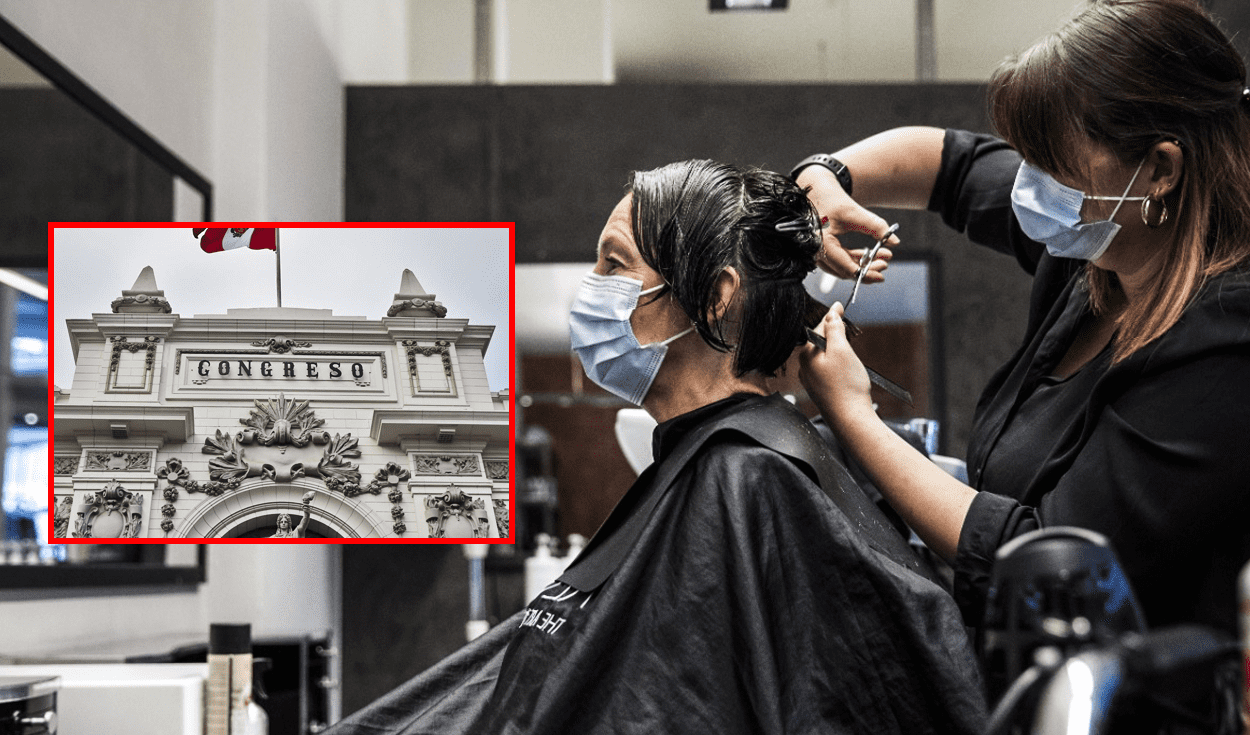
A few weeks ago, the Congressional Economy Commission approved the opinion of the law that seeks to apply a special rate of the General Sales Tax (IGV) of 8% to hairdressers and beauty centers, which today is set at 18%. According to the text of this legislative proposal, its central objective is to promote the formalization of this sector and contribute to economic reactivation.
The opinion, which brings together two projects by congressmen Eduardo Castillo (Fuerza Popular) and José Pazo (Somos Perú), was ready for debate in the Plenary Session of Congress. With the aim of analyzing the scope of this initiative, which implies a tax change, and who it would really benefit, the Republic spoke with economist Armando Mendoza.
Congress seeks to approve a law to reduce VAT for hair salons: who would it benefit?
Last Wednesday, April 17, the Economy Commission chaired by parliamentarian César Revilla approved an opinion that seeks to reduce the General Sales Tax (IGV), from the current 18% to 8%, for hairdressers and beauty salons. This tax change proposal accumulates two legislative initiatives, whose authors are congressmen Eduardo Castillo from Fuerza Popular and José Pazo from Somos Perú.
According to article 2 of the proposal, the special reduced VAT rate would apply to “natural or legal persons receiving income from business activity such as hairdressers and other beauty treatments, provided that their services are taxed in any of the current tax regimes”.
Likewise, it is specified that those enterprises that have annual income from sales or from the provision of services from said activities and represent at least 60% of their income could access this tax reduction.
For economist Armando Mendoza, the opinion approved by the Economic Commission “is indiscriminate because it does not establish a difference between small and large businesses. Furthermore, it does not have a condition in terms of size and its nature is indefinite for this type of business. which would cause it to become a permanent hole in the fiscal coffer from now on.”
Precisely, one of the main observations on this legislative proposal comes from the Ministry of Economy and Finance, which, in an opinion sent in April of last year, indicated that “the project would only benefit a marginal fraction of hair salons, since 84% of the companies in the sector (15.3 thousand) belong to the New Simplified Single Regime and do not declare or pay VAT. That is, the measure would only apply to 16% of taxpayers in the sector.”
In Mendoza’s opinion, the vast majority of small and micro businesses in the beauty sector are already enjoying tax benefits. In addition, there is recent experience that shows that this type of measures benefits large companies, as occurred with the implementation of Law No. 31556 that the Government promulgated in 2022, which reduced VAT from 18% to 8%. for restaurants, hotels and tourist accommodations.
“If we are going to make a tax benefit for a certain sector, we have to be clear about who it should reach, which are the micro and small entrepreneurs, which I understand was the original objective of this proposal. That has disappeared in the opinion and it is well worrying. Furthermore, The beauty, hairdressing and other services sector is very broad. “Here the intention is to apply an indiscriminate benefit, where the biggest fish are the ones that are going to appropriate the benefit.”he added.
Tax reduction for tourism and restaurant mypes in 2022
In 2022, Pedro Castillo’s government enacted the law that reduced the General Sales Tax from 18% to 8% for tourist micro and small businesses (mupes) that include restaurants, hotels and tourist accommodations. The rule received various criticisms, including that of the former Minister of Economy, Oscar Graham, who alleged that, of the 114,000 taxpayers that Sunat registered in this area during 2022, more than half did not pay VAT because they were registered in the Single Simplified Regime. (RUS).
“The precedent that existed with the reduction of the VAT for restaurants and others was very demonstrative. The impact has been very marginal and in truth those who have appropriated the bulk of the tax were the large chains. Under a very laudable discourse of supporting small microbusinesses, family economies, etc., in practice they benefit those who do not need it.“Recalled Armando Mendoza.
It is worth mentioning that this relief in the tax burden for MSEs dedicated to the activities mentioned above, as well as catering services and food concessionaires, began to take effect from September 1, 2022 until December 31 of this year.
Source: Larepublica
Alia is a professional author and journalist, working at 247 news agency. She writes on various topics from economy news to general interest pieces, providing readers with relevant and informative content. With years of experience, she brings a unique perspective and in-depth analysis to her work.











